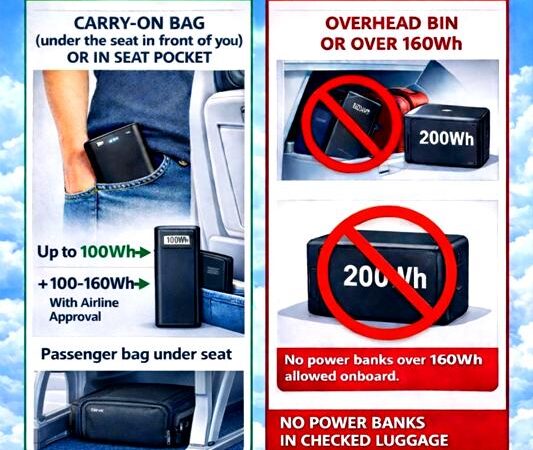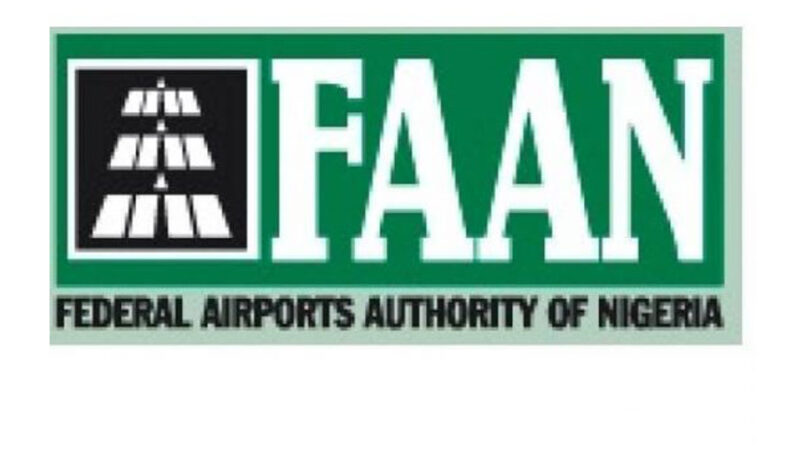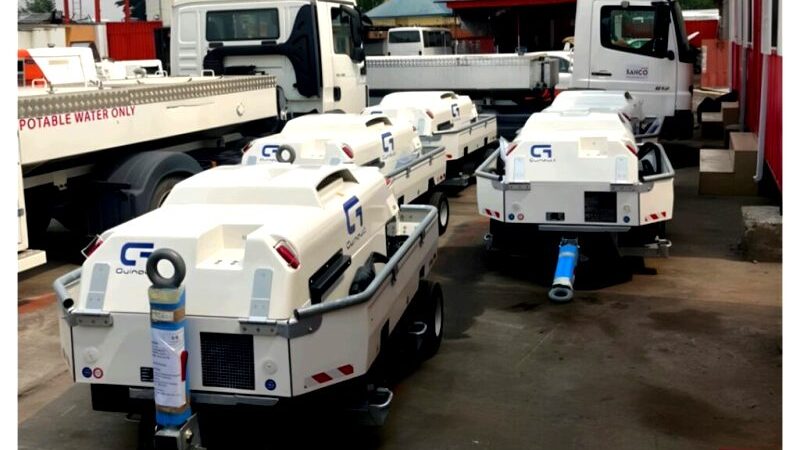NCAA Explains ‘Hurdles’ To Air Operators’ Certificate

The Nigeria Civil Aviation Authority (NCAA) has reacted to a write-up which it says is “propagating falsehood” as a way of explaining what the writer called ‘hurdles’ in the processes of Air Operators Certificate (AOC) Certification.
A statement signed by the Ag. Director General, Civil Aviation, NCAA, Capt. Chris Najomo
Reads: “It will be recalled that the NCAA, in the exercise of its regulatory oversight mandate, on July 4th, 2024, suspended the Permit for Non-Commercial Flight (PNCF) of ten (10) private jet operators. It would be further recalled that NCAA, prior to that in March 2024, had formally issued a stern warning to all private jet operators to desist from conducting illegal charter operations. This was followed up with an All-Operator’s Letter (AOL) dated 16th April, 2024 wherein all PNCF holders were directed to apply for re-certification by the Authority within 72 hours. This suspension is an aftermath of that AOL.
The action taken by NCAA above is part of its mandate to ensure compliance with the civil aviation law establishing it and the attendant regulations. In order to sanitize the sector, NCAA re-affirms its stance to rid the industry of illegal Charter Operators who might have inspired this publication.
The accusation that the prevalence of illegal charters is due to “diluted, pervasive air operating licenses in the various, confusing Civil Aviation Acts” is rather an unflyable alibi for the continuous perpetration of the said illegal operations. Who amongst these operators does not know the difference between, or the intent of, private operation and commercial operation even from the permit being referred to in this write up (PNCF)?
Further to this, the allegation that “no aircraft operator nor the NCAA inspector that can confirm which Act is in vogue” is so fluid and unfounded. To start with, laws are never in vogue but subsisting (enforceable). Except for this writer, all Operators who know what they are doing in the industry and indeed, all NCAA Inspectors, use the Civil Aviation Act 2022, currently in force and the Nigeria Civil Aviation Regulations (Nig. CARs 2023). For the avoidance of doubt, Section 114 of the Civil Aviation Act 2022 repeals the Civil Aviation Act 2006.
The Civil Aviation Act 2006 referred to by the writer as “every operator’s Bible” and that “every page was memorable and clearly understood”, ironically, has all its relevant provisions fully incorporated into the Civil Aviation Act 2022, with additional provisions that address current trends in the dynamic sector which aviation is. There is therefore only one Civil Aviation Act currently in force and one set of regulations called the Nigeria Civil Aviation Regulations (Nig. CARs) 2023. Both documents are known to the entire aviation industry and are being used by all legitimate players in the sector.
Prior to publishing the Nig. CARs, it was subjected to a stakeholder engagement as required by NCAA’s Rule-Making Process Policy and Procedures Manual. Robust discussions were held and inputs were made to the draft. Only after this healthy engagement, was the Nig. CARs completed, approved and subsequently published. This writer clearly did not participate in these processes. For the avoidance of doubt, both documents are gazetted, available in the public domain and published on the NCAA website – www.ncaa.gov.ng.
This apparent lack of participation in Nigeria’s aviation space may be the rationale behind the writer’s misinformed statement that “there are four aircraft operating licenses with limited or undefined scopes: the Air Operating Permit (AOP), Air Transport License (ATL), Permit for Non- Commercial Flight (PNCF), and the Air Operator’s Certificate (AOC).” This mix-up could only be due to either genuine ignorance or deliberate mischief. There is economic oversight which entails the issuance of permits, licences and authorizations. Conversely, there is safety oversight which entails the issuance of safety certificates. The two, yet separate and distinct, are complimentary.
As emphasized earlier, the primary aviation law in Nigeria is the Civil Aviation Act 2022. Section 95 of this Act provides for an effective legal and institutional framework for Air Operator Economic Regulation. Sec 95 (1)(a) clearly states that no aircraft shall be used by any person in Nigeria for flying, while carrying passengers or cargo for reward, on such journeys or classes of journeys (whether beginning and ending at the same point or at different points) or for such flying undertaking for the purpose of any trade or business, except under the authority of and in accordance with a licence, permit, or other authorization issued to him by the Authority. This provision is a word-for-word copy from the previous Civil Aviation Act 2006 the writer claimed he knew every page of. So, one wonders when the amnesia set in.
Part 18 of the Nigeria Civil Aviation Regulations goes ahead to name those economic licences and permits as the Airline Operating Permit (AOP) for non-scheduled commercial air transport and the Air Transport Licence (ATL) for scheduled commercial air transport. The intent is to ensure would-be airlines are legally registered and financially sound to undertake the serious business of running an airline.
It is after this economic viability is ascertained, that the NCAA subjects the would-be airline to the safety certification process culminating in the issuance of an Air Operator’s Certificate (AOC). Part 9 of the Nig. CARs give the provisions for the AOC.
A core mandate of the NCAA is to regulate in such a way that airline operators guarantee the safety of their air travellers. The NCAA would therefore, not issue such an important certificate as an AOC to any organization that has not undergone the requisite financial health audit. The writer should realize that economics directly affects safety.
This practice is in line with international norms. In fact, the International Civil Aviation Organization (ICAO), through its guidance material on air operator certification – Doc 8335 – states that preliminary assessment of an applicant for AOC “should include a parallel assessment of the financial, economic and legal status of the applicant and the proposed operation”. Part III, Chapter 1.3 of this documents stresses the importance of this assessment saying “the financial viability of the operation may be the most critical factor in reaching a decision on whether or not an AOC should be awarded. The applicant needs guaranteed access to sufficient financial resources to obtain all the required equipment, facilities and manpower and to fully support operations in the early stages when revenues are difficult to predict and may, in any case, be very low. Marginal or severely limited resources frequently result in an adverse effect on safety and efficiency; experience indicates that operators tend to take short cuts on such vital matters as required maintenance, acquisition of adequate spare parts, training of personnel and other similar matters with safety implications”.
The writer tried, unsuccessfully, to describe what obtains in Europe by postulating that “In Germany, a member of the European Aviation Safety Agency (EASA), acquisition of an aircraft is an instant ownership of an Air Operator’s Certificate”. This can only be a figment of the writer’s imagination. To obtain an AOC in Europe just like in any ICAO-compliant country, the applicant must undergo the financial health assessment. Different countries call these permits/licences different names, but they serve the same purpose in accordance with the previously quoted ICAO guidance in Doc 8335. For example, what we call in Nigeria the ATL/AOP is what the United Kingdom CAA calls Operating Licence. In EASA and UK CAA, the applicant goes through the financial health assessment to obtain these economic licences, and then undergoes operational safety assessment to obtain the AOC. It is as straightforward as that.
Is the writer implying Nigeria depart from this international practice due to what he termed “overlapping nonsense” in order for him to obtain his air operator certificate through the back door?
If the writer was following domestic aviation events in the recent past, he would have been aware that NCAA has simplified the process of obtaining and renewing AOCs. For instance, the AOC validity has been extended from two years to three years for non-scheduled commercial air transport operators, and to five years for scheduled commercial air transport operators. This has relieved airlines of the burden of frequently undergoing the certification process. To fill that gap, the NCAA has instituted an enhanced surveillance regime to ensure safety standards are being maintained throughout this extended validity period. The NCAA also relaxed the minimum requirements for some key management personnel required to be appointed in the airlines. Still in line with the ease-of-doing business principle of the present Ag. Director General Civil Aviation, the five-phase certification process for AOC renewals has been cut to four.
On the fees paid for the acquisition of these certificates and licences, Sec. 21 of the Civil Aviation Act 2022 states that NCAA runs on a cost-recovery basis. This section further empowers the Authority to impose fees for the regulatory services it renders. NCAA does not receive any allocation from the Federal Government and therefore meets its obligations entirely from the fees and charges statutorily mentioned in the Act. Despite this challenge, fees were not fixed arbitrarily.
A situation where the fee for obtaining an AOC was a meagre N200,000, which has remained the same for over two decades, was certainly no longer sustainable in assuring proper safety certification of prospective airlines for the safe transportation of the travelling public. NCAA even benchmarked its fees against other countries in the West African sub-region to arrive at realistic figures. The writer may need to pick up the Ghana CAA fees schedule to do a simple comparison rather than making sweeping statements devoid of facts and figures.
In castigating the air operator certification process, the writer said “for a start- up company to fly an empty plane for 20 to 50 non-revenue hours in the guise of operational and regulatory compliance test flights, is not only costly, but enough to bankrupt the proposed airline before it begins”. This is yet another instance where the writer displays his detachment from international practices. According to the ICAO guidance on certification of air operators (Doc 8335), State regulations should require an applicant to demonstrate the ability to comply with regulations and safe operating practices, in actual performance of activities and/or operations, before beginning revenue operations. Through demonstration flights, NCAA evaluates the effectiveness of the policies, processes, procedures, activities, instructions and interface management as described in the manuals and other documents of the intending airline. All AOC holders in Nigeria have undergone this process so one wonders again why the writer would rather short-circuit this internationally recognized practice. It may interest the writer to know that the U.S. FAA requires up to 100 hours of non-revenue proving (demonstration) flights which is double that of Nigeria. To obtain an aeroplane Low Visibility Operation (LVO) approval in Europe, EASA requires up to 100 approaches and landings.
Aviation standards cannot and should not be watered down to please those who canvas the outlandish views espoused in the write-up. Aviation is international in concept. Nigeria, as an ICAO Contracting State, has ensured its safety oversight system conforms to the eight Critical Elements prescribed by ICAO. While our Civil Aviation Act complies with the Convention on International Civil Aviation, our Regulations must remain consistent with the ICAO Standards and Recommended Practices (SARPs).
In one breadth the writer suggests “All industry regulations require strict supervision and evaluation”, but now the NCAA is doing exactly what he suggested, he cries fowl.
The NCAA in keeping with its fact-based response acknowledges an accurate statement in the write-up where the writer correctly stated that “Registered private aircraft being used for hire and rewards is as old as the history of aviation itself. It is a worldwide scourge, and a perennial issue in Europe and America. These are two regions with even less costly aircraft operating charges.” Having recognized this fact, the NCAA, rather than fold its hands and go to sleep, has resolved to tackle this scourge head-on. The support of all well-meaning stakeholders will always be elicited as the industry is for us all. If the NCAA succeeds, the entire industry and indeed, Nigeria, has succeeded.
Another statement which is correct is where the writer confirms that “the onus is on the regulatory agency to properly investigate, caution, and sanction violators.” The NCAA investigated, then cautioned against such practice in March of this year (after many previous cautions) and called for a comprehensive re-certification in April. The NCAA has now sanctioned as called for by the writer.
Number 1 of the five-point agenda of the Honourable Minister of Aviation and Aerospace Development stresses strict compliance with safety regulations. This is a testament to the support NCAA is receiving from the highest levers of government in this relentless pursuit.
The NCAA wishes to reiterate that the aviation industry is open and welcoming to all who wish to do business legally and in compliance with safety, security and economic requirements. Number 2 of that five-point agenda is on supporting growth and sustaining local airlines business whilst holding them to the highest international standards. The other three points on the HMA’s agenda on infrastructural, human capacity development and revenue generation are all geared towards enhancement of aviation safety and economy in the interest of Nigeria. The Najomo-led management of NCAA has keyed into this 5-point agenda and continually welcomes inputs from stakeholders in an effort to grow the aviation sector in Nigeria and has, therefore, made regular engagements a cornerstone of its administration.”






